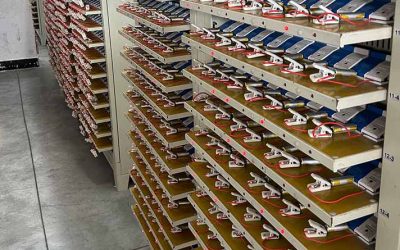Proper disposal of old lithium-ion (Li-ion) and lithium-polymer (LiPo) batteries is important for both safety and environmental reasons. Here are the recommended steps for discarding these batteries:
**1. Do Not Throw Batteries in the Trash:
- Avoid Landfills: Lithium-ion and lithium-polymer batteries contain chemicals and metals that can be harmful to the environment if they leach into soil and water. Throwing them in the regular trash can pose environmental risks.
**2. Use Battery Recycling Programs:
- Recycling Centers: Many communities have designated recycling centers or electronic waste (e-waste) disposal sites that accept batteries. These facilities can properly handle and recycle the materials.
- Retail Take-Back Programs: Some retailers and electronics stores offer battery recycling programs or take-back schemes. Look for collection bins or contact the store for information on how to recycle your batteries.
- Municipal Collection Events: Check if your local municipality hosts special collection events for electronic waste or batteries.
**3. Follow Local Regulations:
- Compliance: Different regions have varying regulations and guidelines for battery disposal. Check local regulations to ensure you are following the proper procedures for your area.
**4. Prepare Batteries for Recycling:
- Tape Terminals: If possible, tape the terminals of the batteries to prevent short-circuiting during transportation and handling. This is especially important for lithium-ion batteries, which can pose a fire hazard if their terminals come into contact with each other or other conductive materials.
- Avoid Damage: Handle old batteries carefully to avoid puncturing or damaging them, which can cause leaks or fires.
**5. Special Considerations for Large Quantities:
- Bulk Disposal: If you have a large number of batteries, such as from a business or organization, contact a professional e-waste disposal service that can handle bulk quantities and ensure proper recycling.
**6. Battery Collection and Recycling Resources:
- Call2Recycle: In some regions, organizations like Call2Recycle offer battery recycling services and provide information on drop-off locations. Call2Recycle Website
- Local Recycling Programs: Search for local recycling programs or hazardous waste disposal services that accept batteries.
Summary:
- Do Not Throw Batteries in the Trash: Avoid landfills due to environmental risks.
- Use Battery Recycling Programs: Utilize designated recycling centers, retail take-back programs, or municipal collection events.
- Follow Local Regulations: Adhere to local guidelines for proper disposal.
- Prepare Batteries for Recycling: Tape terminals and handle batteries carefully.
- Special Considerations: Use professional services for large quantities of batteries.
- Resources: Check organizations like Call2Recycle for battery recycling information.
By following these guidelines, you can ensure that old lithium-ion and lithium-polymer batteries are disposed of in an environmentally responsible and safe manner.

发表回复